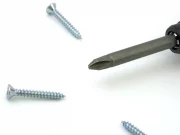Do you use a dishwasher? There is an increased need to save time, energy, and money in today’s world; as a result, dishwashers come in handy.
And while some assume that hand washing is the healthier option, science has gone ahead to prove otherwise.
Getting a dishwasher can never be a bad idea. These marvelous appliances have so many positive effects that outweigh the negative. You’ll only have to load, start, and empty, super easy.
The amount of water used in a dishwasher is fixed for every wash. You might be a shopper with water efficiency in mind. Before getting deeper into the topic, let’s first answer our question,
Do dishwashers save water?
Yes, when it comes to energy consumption and water usage, dishwashers actually use less water than hand washing. Dishwashers that are energy star certified consume up to 4 gallons per cycle and can save up to 5 000 gallons of water per year.
When Was The First Dishwasher Used?
Dishwashers have been around for centuries. There’s no doubt that dishwashers are a popular household item. And the over 170-year history shows the hate towards washing dishes.
Joel Houghton invented and earned a patent for the first dishwasher in 1850. Although the dishwasher wasn’t similar to today’s gadgets, it did the cleaning.
The “Adam” of dishwashers was a wooden box with scrubbers and a hand-turned wheel that splashed water on dirty dishes.
Josephine Cochrane improved Cochrane’s dishwasher. The machine used water pressure to clean, unlike the first that used scrubbers. The design was patented in 1886.
Cochrane was famous and inevitably had to host massive parties frequently. The socialite hated when the heirloom china got chipped during the washing process.
And after chipping the dishes herself, she had had enough. Cochrane designed the first model using plates, cups, and saucers’ width, height, and length.
The dishwasher had compartments made of wire separating each dishware. And a container at the bottom to hold the soap.
Cochrane didn’t have an engineering background. Mechanic George Butters assisted in making the prototype.
Cochrane started making the dishwashers for her friends while advertising in newspapers, and eventually, restaurants took interest.
It wasn’t until 1924 that machines started bearing a resemblance to the modern dishwasher. Since then, thousands of dishwashing machines have been made. With every dishwasher being eco-friendlier than its predecessor.
How Do Dishwashers Work?
You’ve loaded the dishes on the racks, loaded the dishwashing detergent, selected a wash cycle, and started the machine.
All you know now is that water is involved because you can hear it startup. What happens behind the doors of a dishwasher?
Immediately you turn on your appliance, water is added to its basin. Yes, the dishwasher doesn’t fill up with water. Some pumps propel water from the basin at the bottom to jets.
The force that water releases cause the arms holding the jets to rotate. The jets of water pre-wash the dishes by spraying water on them. The pre-wash loosens and removes the food particles that might still be on the dishes.
The water in the basin is heated to the required temperature. Wash cycles use different water temperatures.
If the water isn’t at the right temperature, the dishes may not be clean after the wash, or the dishwasher detergent may not dissolve.
The detergent dispenser has a timer that releases detergent into the appliance. The hot water and detergent are sprayed onto the dishwasher, washing off dirt and residue. The dirty water is pumped out, and clean water is added for rinsing.
Once the dishes are rinsed, the dirty water is drained. Depending on the type of dishwasher, the dirty water might go up into the sink or directly into the pipes. Yeah, you don’t have to handle the dirty water.
The dishes are then dried by surplus heat and fun in the dishwasher. And you’ll know if your heating element is terrible when the dishes are not properly dried. But that may not always be the case.
While glasses and ceramics dry faster, plastics take up more time. The difference comes in due to the different heat retention properties. Your dishwasher is okay.
Benefits Of Having A Dishwasher
There are so many debates surrounding dishwashers. Many will agree that hand washing is efficient when living alone or with few people. Below are some of the many reasons why dishwashers have the trump card.
1. No messy kitchen with a dishwasher around
If you don’t have a dishwasher, you pile dirty dishes in the sink. Having dirty utensils on your kitchen sink is unpleasant, unhygienic, and will bring an odor. So you either have to drop everything you were doing and get to cleaning or have a messy kitchen; you don’t want that.
2. Dishwashers are time-saving
No one can deny this fact; dishwashers use less of your time compared to hand washing. It takes you an average of nine minutes to load and start the appliance.
3. Healthier than hand washing
You need water that’s above 60° C to wash your dishes properly. Your hand certainly can’t stand that. Dishwashers use water that is about 75°C giving your dishes a thorough and hygienic wash.
4. Increase value for your home by buying a dishwasher
Apart from matching your interior décor, dishwashers increase property value. A house with a dishwasher won’t sell at the same price as that without. Washers are always part of bargains when buying property.
5. Cleaning easier with any dishwasher
The fun doesn’t end with less time usage and no water splashing. Dishwashers are gentle on your hands, and getting cut by broken crockery is impossible. There is hardly any breakage of the dishes as they are washed.
6. Clean dishes are assured when using a dishwasher
An often asked question is whether the dishwasher is clean well. This life-saver does its job to perfection. The once dirty plates and cups are left clean and shiny.
7. Dishwashers are economically friendly
The dishwasher has been designed to use less water, less detergent, and less energy. With a wide range to choose from, you get value for your money. The machine uses a fixed amount of energy, detergent, and water to predict your expenses easily.
8. No dishwasher takes up space
As mentioned above, there is a variety you can pick. No matter what size you pick, dishwashers are space-efficient. From freestanding to built-in dishwashers, they can be placed anywhere you see fit.
9. Dishwashers are the go green option
Yes, dishwashers save water. Running the dishwasher with a full load is more efficient, and you’ll still save water.
10. There is no better stress reducer
An appliance that once bought, no regrets follow. All the above advantages are the reasons why you’ll dread not having a dishwasher. No more arguments about whose turn it is to wash the dishes.
Modern dishwashers have time delays allowing you to load dishes at your convenience. You don’t have to watch it as it runs. You switch it on; go binge-watch, sleep or do anything you want with your saved time.
The high prices aren’t an issue since the varieties of dishwashers available are endless. Do your research before purchasing to get a dishwasher that’s within your budget.
How Do Dishwashers Save Water?
Typically, when washing crockery, you fill the sink with water. Some don’t fill the sink but wash and rinse the dishes individually with running water. How much water do you think is used?
Dishwashers, on the other hand, washes and rinses the dishes simultaneously. In turn, less water is used in cleaning clutter. The constant spraying of water makes it seem impossible.
The Natural Resources Defense Council, Inc. states that a dishwasher uses as little as 3 gallons for every load, 24 gallons less than hand washing. This, of course, is an energy-certified dishwasher.
All dishwashers recycle the pre-wash water. There is a filter that catches most of the particles from the first wash.
The rinsing water is fresh. After the cleaning and rinsing, the dirty water is pumped out of the dishwasher.
The water miser is very efficient. But if you want to save more water, you can avoid the pre-rinse. Also, run a full load in the dishwasher and make sure the device is clean.
This environmental factor has puzzled many. There is no judgment for assuming that dishwashers use so much water. After all, they are huge appliances.
Conclusion
It goes without saying; dishwashers are the future. With immense benefits saying no to them is on you. If you’re having doubts, then compare your water bills before and after using a dishwasher.
Coin saved, water spared, but it doesn’t end there. Dishwashers are ideal for those with busy lives or those who don’t like washing dishes. As stated, it’s only a matter of loading, turning on, then offloading.
The ever-evolving gadget is easy to use. The inner workings may seem to be a mystery, but it’s an open phenomenon. The safety of your chinaware is guaranteed.
There isn’t a reason why you shouldn’t get one today.





















